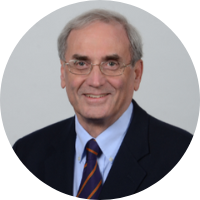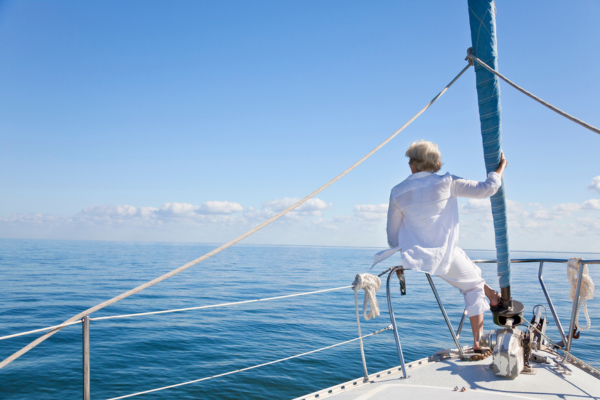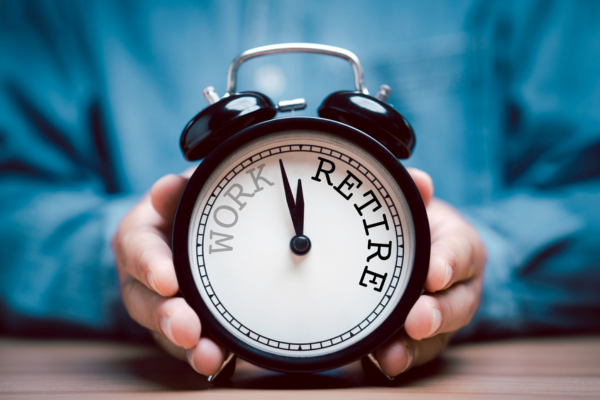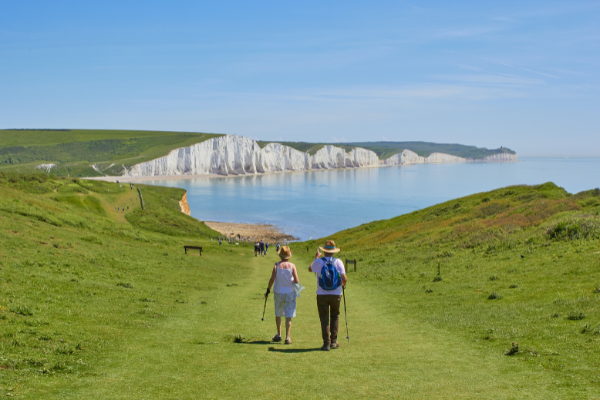
Did you choose retirement? Or was it chosen for you?
Retiring when I did (end of 2015) was my choice. Our financial advisor assured my wife and me that our savings and investments would carry us through retirement, and I was looking forward to spending more of my time on volunteer activities.
How was the transition from the working world to retirement?
For me the transition was easy. During 2013, my second year as an officer of IUPAC, I found it necessary to spend more time on IUPAC matters than I could spare as a full-time employee, so I asked for a leave of absence. That time allowed me to become comfortable with what retirement would feel like - working at home and having a flexible schedule.
So far, what has surprised you most about retirement?
How much I enjoy it. Being retired has made it possible for me to devote my time to things I think are very worthwhile and rewarding.
What’s your best advice for someone in their 20s/30s?
First, start saving for retirement as soon as you can, even if you can only put away a few dollars a month. If your employer has a matching IRA or 401k or similar plan, use it. Second, develop a hobby or outside interest during your working career– that can become the focus of your activities when you’re retired.
What do you enjoy most about being retired?
I love the freedom to schedule my time (well, mostly) as I wish. I’m a cyclist, so being retired allows me to get in nice long rides nearly every day when weather permits.
What’s the biggest challenge you have confronted to this point in your retirement?
Staying current in chemistry has been a bit of a challenge. I try to keep up with certain journals and publications like C&EN, and I like to attend technical sessions at conferences.
How do you stay connected to the chemistry enterprise as a retiree?
My volunteer work in chemistry. During retirement I was chair of the ACS Committee on Science and I’m now a member of the International Activities Committee, and I’m chair of the Chicago local section. I have served during retirement on a few standing committees and ad-hoc organizations in IUPAC, and I’m also an officer of the new international Standing Committee for Gender Equality in Science, which advocates for gender equality at the global level.
What’s a travel destination you can’t wait to get back to?
The Big Island of Hawaii. As a cyclist, I’ve ridden the bike course on the island that’s part of the Ironman Triathlon World Championships. I’m no triathlete, but the bike course, along the “Queen K Highway,” has absolutely breathtaking scenery and killer crosswinds.
What do you like most about where you are living in retirement? What’s one thing you wish you could change about where you live?
One reason I like living in suburban Chicago is that many members of my family live in the Chicago area, so it’s possible to see them without having to travel too far.
I’m not a big fan of cold weather, but that doesn’t seem to be something a person can change.
What guidance do you have for people who are getting ready to retire?
Have a plan for how you’ll use your time. It doesn’t have to involve work, but it should be something that fulfills you and that you enjoy.

Mark Cesa is a physical organic and organometallic chemist with research interests in homogeneous and heterogeneous catalysis and organic reaction kinetics and mechanisms. Before he retired in 2015 from INEOS USA LLC, his work focused on new catalytic reactions, chemical process optimization, and safety and environmental protection in chemical manufacture and use.
Mark is the 2022 chair of the ACS Chicago Section, and he is a member of the ACS International Activities Committee. He has also served as member and chair of the Committee on Science and as a member of the Committee on Chemical Safety. He has held positions in the Chicago and Cleveland local sections, and he became an ACS Fellow in 2012.
Mark was 2014-15 President of the International Union of Pure and Applied Chemistry (IUPAC). He has served on several committees and task groups in IUPAC and has contributed to projects and programs at the U. S. National Academies, the Organization for the Prohibition of Chemical Weapons (OPCW), and the International Science Council (ISC). His contributions focus on chemical safety and security and gender issues in the sciences. He is currently treasurer of the Standing Committee for Gender Equality in Science (SCGES).
Mark earned an A. B. in chemistry from Princeton University and M.S. and Ph.D. in organic chemistry from the University of Wisconsin, Madison.
Mark and his wife, Irene, live in suburban Chicago, and they have three adult children. He is an amateur cyclist who has raced in several triathlon relays with his son and daughters and has ridden in charity events to raise funds for research into diseases including leukemia, lymphoma, and diabetes.
This article has been edited for length and clarity. The opinions expressed in this article are the author's own and do not necessarily reflect the view of their employer or the American Chemical Society.












